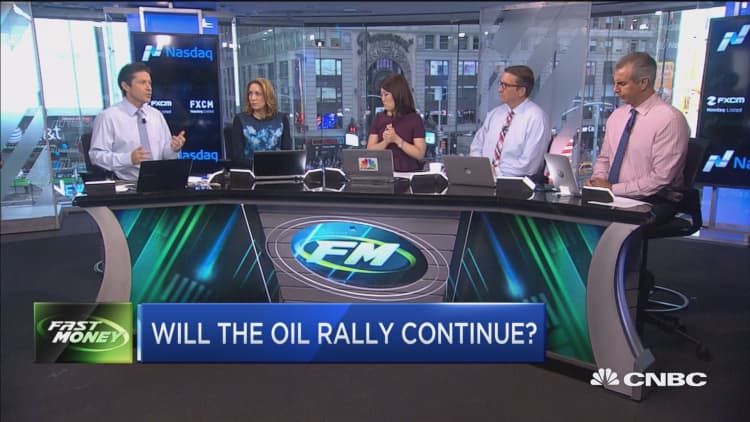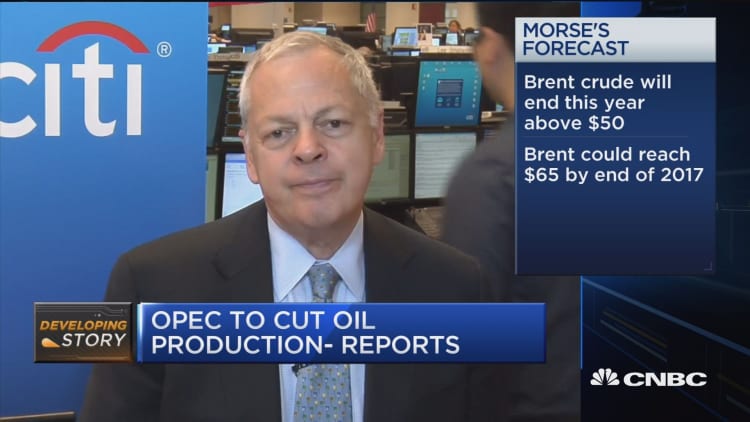Oil prices settled at a more than one-month high on Thursday as optimism over an OPEC plan to limit output was offset by questions over its ability to rebalance a heavily over-supplied market.
The Organization of the Petroleum Exporting Countries agreed on Wednesday to cut output to 32.5 to 33 million barrels per day (bpd) from around 33.5 million bpd, estimated by Reuters to be the output level in August.
OPEC said other details of the plan will be known at its policy meeting in November, leaving unanswered when the agreement will come into effect, what new quotas for member countries will be and for what periods, and how compliance will be verified.
Earlier in the day, oil was down, with crude futures retreating from their 6-percent gain on Wednesday, the biggest in a day since April. A steady dollar and weak U.S. stock market also limited some of the upside in oil in early trading.

Global benchmark Brent crude oil was up 36 cents a barrel at $49.05 by 2:58 p.m. ET (1858 GMT). The contract earlier rose to $49.81, the highest intraday level since Sept. 8.
U.S. light crude oil settled up 78 cents, or 1.7 percent, at $47.83 a barrel, the highest close since Aug. 23.
Many analysts said there remained a lack of clarity over details, as well as a risk the deal could unravel. Moreover, if oil prices were to rise, it could also lead to a surge in non-OPEC output, they said.
"With such uncertainty around the minutiae, we expect uncommon volatility in the oil market until OPEC's November meeting," analysts at ING said.
An invitation to join the cuts could also be extended to non-OPEC countries such as Russia.
Russian Energy Minister Alexander Novak said on Thursday Russia is aiming to keep its oil production at near-record levels despite OPEC's decision to modestly reduce its output.
He said Moscow was ready to consider proposals from OPEC for joint action on the oil market and would hold consultations with the group in October and November.
Again Capital Founding Partner John Kilduff said he did not see any fundamental reason for the rise in prices on Thursday. In his view, continued Russian production of 10.7 million barrels a day would not help to rebalance markets.

U.S. bank Goldman Sachs said it expected the OPEC deal to add $7 to $10 to oil prices in the first half of next year.
"We think that OPEC is running a dangerous game if the aim is to push the crude oil price higher from here in the short term as it would just activate more U.S. shale oil production," said Bjarne Schieldrop, chief commodity analyst at Nordic bank SEB.
And a cut in OPEC production might do little to reduce oversupply, given uncertainty about output from Iran, Libya and Nigeria.
"The problem of surpluses will not be solved if these countries take full advantage of their capacities," Commerzbank chief commodities analyst Eugen Weinberg said.
— CNBC's Tom DiChristopher contributed to this report.

